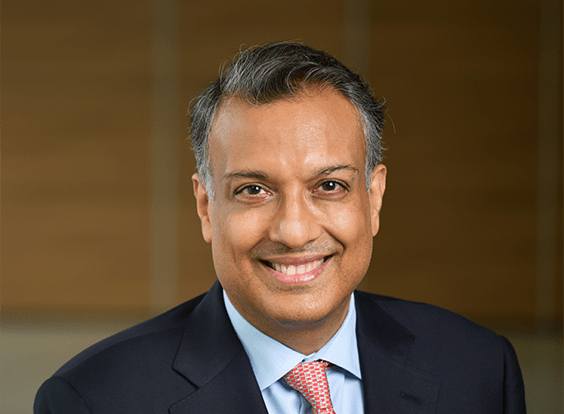As many as 190 countries have come together at the COP27 Summit in Egypt, at a time when the world is seeing instability in the energy market, triggered by the Russia-Ukraine War.
Talking about the summit, Sumant Sinha, Chairman & CEO of homegrown renewable energy company Renew Power, said during the first two days of COP27, all the heads of state come and interact with one another and in some ways this lays out the tone of what they expect to see happening. The real negotiations start toward the backend.
He said the conversation is shifting to getting in more blending finance. “Right now the conversation is not so much about the climate finance ask from the developing countries but the whole conversation is shifting to how can we get more blended finance to come in? Blended finance is nothing but somebody stepping up, like the multi-laterals, and providing some sort of guarantees on protecting certain kind of risks — whether it is the sovereign risk, first loss risk, FX risk and so on,” Sinha said, adding that by providing those guarantees they are essentially improving the credit quality of projects in developing countries and thereby pushing a lot more private sector financing to come in.
“The question is how do we crowd in that financing? And in the conversations that I have been in so far, that has been the bigger focus,” the ReNew Power CEO told CNBC-TV18.
Meanwhile, R.P. Gupta, former secretary of the Ministry of Environment and Forests, said that parity needs to be established for concessional financing for developing countries. “Climate financing is something for which a lot of work still needs to be done — how the finances would be collected, what will be the criteria for collection of climate finance, how it will be disbursed between different countries etc are still part of the negotiation which I hope at this COP or at least by the next COP are concluded,” he said.
Gupta, who played an important role during negotiations at COP 26, said developing countries require climate finance at a concessional rate, which will enable them to develop resources themselves at a cheaper rate, and the same without climate finance would be costly.
“So to reduce the cost of that development which developed countries have enjoyed by using coal, a parity needs to be established whereby the developing countries get finance at a concessional rate for their development. So, any financing which comes to India or developing countries as part of the investment should not be counted as finance,” he said.
Gupta also believes the ‘polluter pays principle’ must be applied globally.
“Every developed country and many of the developing countries apply this principle in their domestic areas, so there is no reason why it cannot be applied in international forums,” he added.
Sinha also thinks multi-laterals such as the World Bank, International Finance Corporation, Asian Development Bank, among others, are not doing as much as they need to do right now.
“What is happening is they are providing financing from their balance sheets and the way of their lending to the sector has not changed over the last 10 years …we know that they want to do it but somehow between their bureaucracies or their existing processes we are just not able to make substantive movement,” he said.
These multi-laterals are the key to providing and catalysing more financing from the private sector into developing countries, he added.



